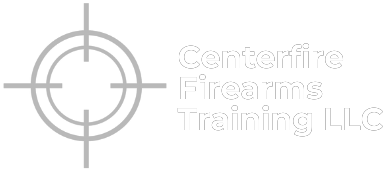COURSE DESCRIPTIONS
concealed carry course
The concealed handgun course is designed to help the law-abiding citizen develop a personal protection plan that keeps one physically, legally and financially safe. Training emphasizes the use of a concealed handgun for personal protection.
This state-mandated 15-hour course will meet or exceed all the requirements necessary to obtain a New Mexico concealed carry license with reciprocity in several states, and is appropriate for people with a wide range of shooting experiences, from the novice to the veteran.
If obtaining a concealed carry license is something you have wanted to do, this is your opportunity to do so, and have fun doing it!
Prerequisites: Must be 21 years of age or older
Equipment Requirements
Minimum qualification caliber is a .32 caliber.
Can qualify with a revolver or semiautomatic, or both.
Twenty-five rounds are required for each action type, and highest caliber for which the applicant seeks certification.
Additional factory practice rounds are recommended.
Defensive handgun Course
The Defensive Handgun Class was developed for those who wish to continue their training with a handgun beyond the minimum marksmanship standards required for a New Mexico CCW license or the Basic Pistol Class. This training is also appropriate for those who may have let their practical shooting skills get a little rusty.
This class includes classroom instruction and range work, with heavy emphasis on the safe and efficient practical application of self-defense skills, including the presentation, the balance of accuracy and speed, tactical and emergency reloading, and movement. This level of instruction will not include firing from a kneeling or prone position. Competition handguns and pocket pistols are not appropriate for this course.
Prerequisites: This is not a beginner’s class. Students should have a working knowledge of the handgun of their choice, and a sound understanding of firearms safety principles.
Equipment and More
A duty-size centerfire handgun.
A sturdy belt, an OWB holster and magazine holder.
A minimum of three (3) magazines.
Speed loaders or speed strips for those who train with revolvers.
Hearing and eye protection.
200 rounds of factory ammunition.
Defensive revolver Course
This course was designed for those people who prefer the revolver for self-defense. Revolvers are the easiest handguns to shoot and the most difficult to shoot well. This one-day course will focus on the building of practical double-action revolver self-defense shooting skills. Competition or pocket revolvers are not appropriate for this course. Topics include:
Types and characteristics of common revolvers
Nomenclature and operation
Loading, unloading and reloading techniques
Efficient shooting techniques
Accessories such as holsters and various reloading options.
Prerequisites: Students should have a working knowledge of the revolver of their choice, and a sound understanding of firearms safety principles.
Equipment and More
A duty-size, centerfire double-action revolver
A sturdy belt and an OWB holster
A minimum of three (3) speed loaders or speed strips
Hearing and eye protection
150 rounds of factory ammunition
Low-Light Shooting Course
Self-defense situations can happen at any time! Yet, most licensed concealed carry holders train on a range during daylight hours under favorable weather and lighting conditions. Bad things can, and do, happen at any time, including the hours of darkness.
This 6-hour course is designed to help the student understand the similarities and differences between daytime and nighttime shooting as well as gain confidence and practical experience identifying and shooting during low-light or no light conditions. The importance of target identification is stress and topics such as the pros and cons of night sights, handheld and weapon mounted lights, and lasers are covered.
Equipment and More
This is an intermediate skill level class. Students should already have a good workign knowledge of their handgun and a solid understanding of gun handling safety.
Class size and instructor to student ration is purposely kept small to maximize training and maintain safety.
NRA Basic Pistol Shooting Course
This NRA Basics of Pistol Shooting takes place in a traditional classroom and range environment where you will receive instruction from an NRA-certified instructor. Course topics include: gun safety rules, proper operation of revolvers and semi-automatic pistols, ammunition knowledge and selection, pistol selection and storage, shooting fundamentals, pistol inspection and maintenance, marksmanship, and shooting range safety. Additionally, students will complete live fire training and a nationally standardized shooting qualification while on the range. Students will receive the NRA Guide: Basics of Pistol Shooting handbook, take a Basics of Pistol Shooting Student Examination and receive a course completion certificate bearing the signature of the NRA Secretary and your NRA Certified Instructor.
Trauma Medicine Course
What would you do to treat a gunshot wound? The Trauma Medicine courses focuses on the basic techniques required to provide lifesaving medical care to trauma or gunshot victims. A focus will be on developing and using a basic First Aid kit. It includes the following instruction:
- Proper use of tourniquets
- Management of penetrating torso/abdominal injuries
- Use of chemical coagulation
- Basic Lifesaving techniques
- Building a range ready First Aid kit.
